OER Champions at UNM
The College of University Libraries & Learning Sciences at UNM celebrates faculty and staff who strive to expand the availability of educational resources for the benefit of all students. An open educational champion breaks down barriers to study by providing students with free, high-quality learning materials from a variety of sources. OER (Open Educational Resources) make it possible for instructors to reach beyond the textbook, to modify, adapt, and edit materials that expand the educational experience.
Upcoming Presenters: NMOER Champions
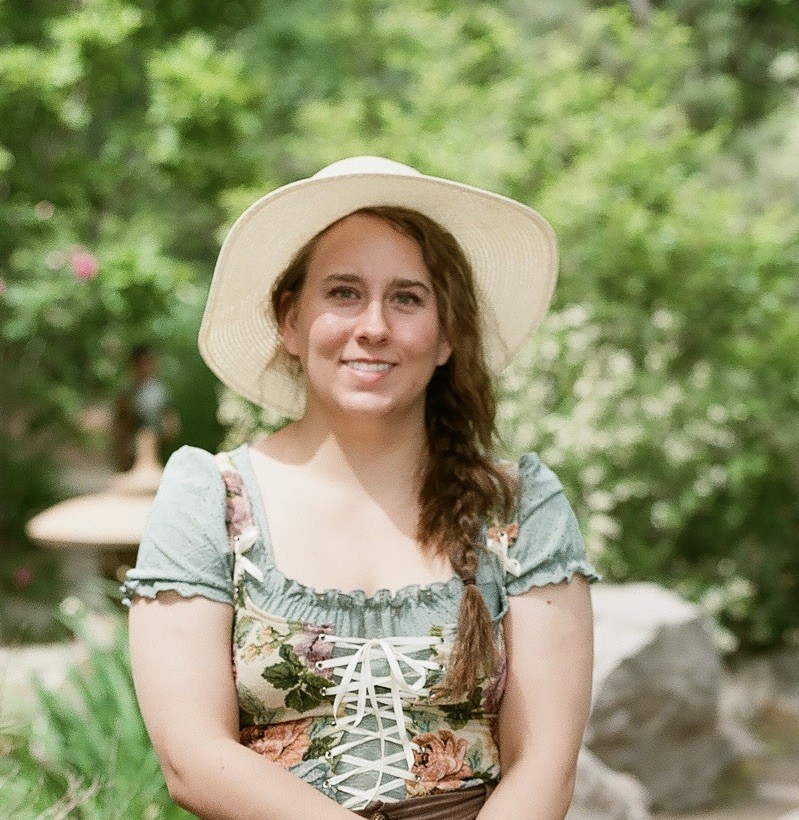
Research Graduate Assistant; Second author of OER Book Early World Literature: A Restorative Justice Approach
Averie Basch is a second-year doctoral student at the University of New Mexico pursuing a degree in Medieval Studies. She focuses on Arthuriana, Celtic mythology, and Otherworlds. She takes great interest in the how Arthurian literature reveals interactions between the Christianized North Atlantic and the Celtic fringe and how the Pre-Christian traditions survived in converted communities through storytelling. Much of her work assesses how the liminal spaces portrayed through the literature reflect borderlands in geographic and cultural contexts.
Nahir I. Otaño Gracia
Assistant Professor of English; First author of OER Book Early World Literature: A Restorative Justice Approach
Nahir Otaño Gracia is an Assistant Professor of English. Her theoretical frameworks include translation theory and practice, the global North Atlantic (Britain, Iberia, and Scandinavia), and critical identity studies. She has published a number of essays as well as the book The Other Faces of Arthur: Chivalric Whiteness in the Global North Atlantic with Penn Press (April 2025). Her co-edited volume of essays, Women’s Lives: Self-Representation, Reception, and Appropriation in the Middle Ages, was published in 2023.
Recently, Nahir has taught courses such as Intro to World Literature: On Hate and Restorative Justice and Medieval Romance and Race. Her courses tend to cluster canonical works of literature, transgressive literature by women of color, and materials from popular culture that students already know and welcome in order to help students decenter, dismantle, and recreate the canon.
Nahir is also an activist medievalist working to create a more inclusive medieval studies.
Elizabeth Zavala
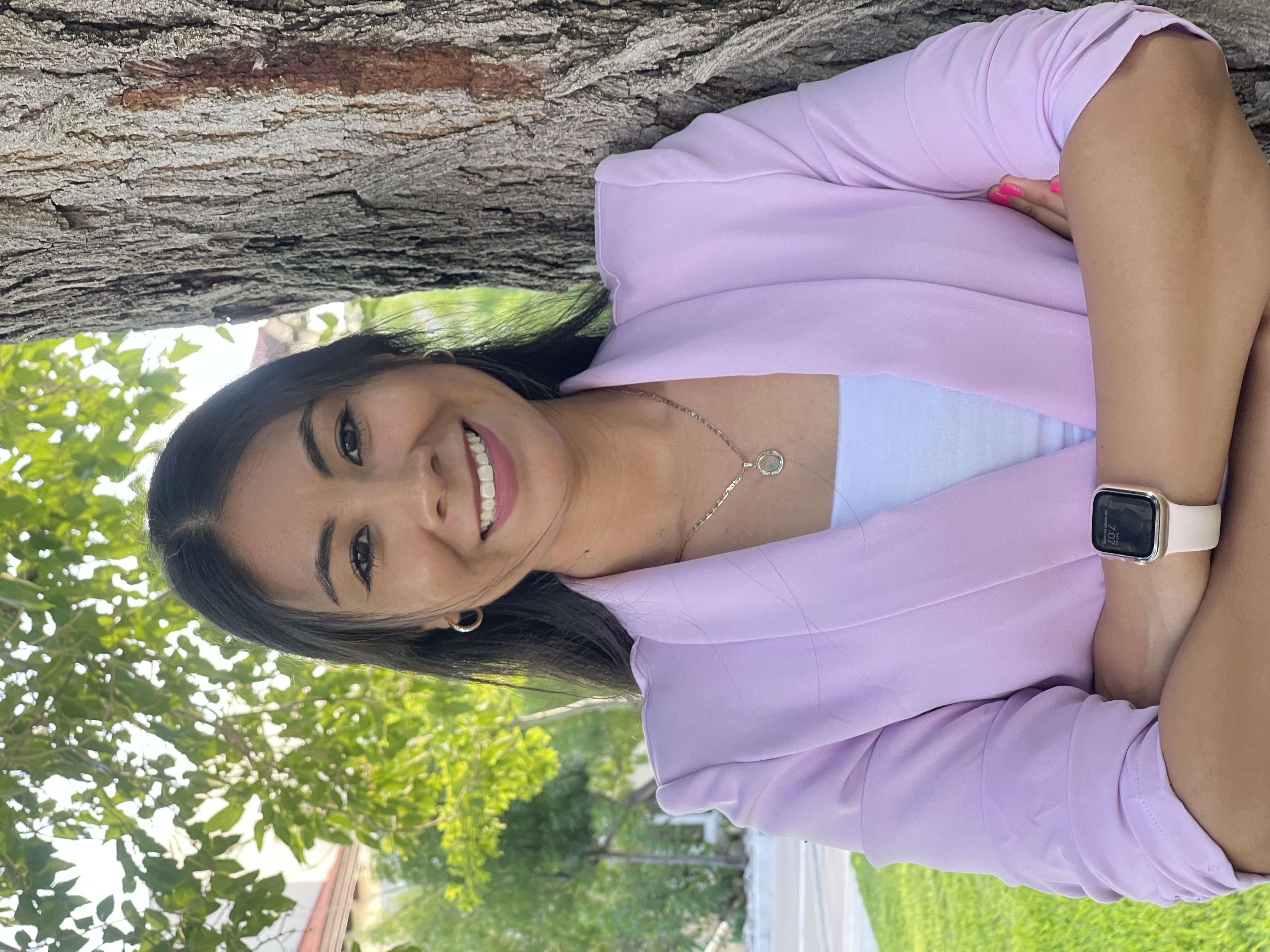
PhD student and Instructor of Spanish
Elizabeth A. Zavala was born in Bakersfield, California, but she grew up in a small village in Guanajuato Mexico. She received her bachelor’s degree in Spanish and her master's Degree in Hispanic linguistics at New Mexico State University (NMSU). She is currently a PhD student in Hispanic Linguistics at the University of Nuevo Mexico (UNM). She is the assistant coordinator for the Spanish as a Heritage Language program and as a teacher's assistant (TA). Her research interests focus on investigating the Spanish language changes in society. For her dissertation, she will investigate the linguistic and social changes of agricultural workers in Hatch, NM. She plans to give visibility to these people and their stories.
Brisa del Bosque
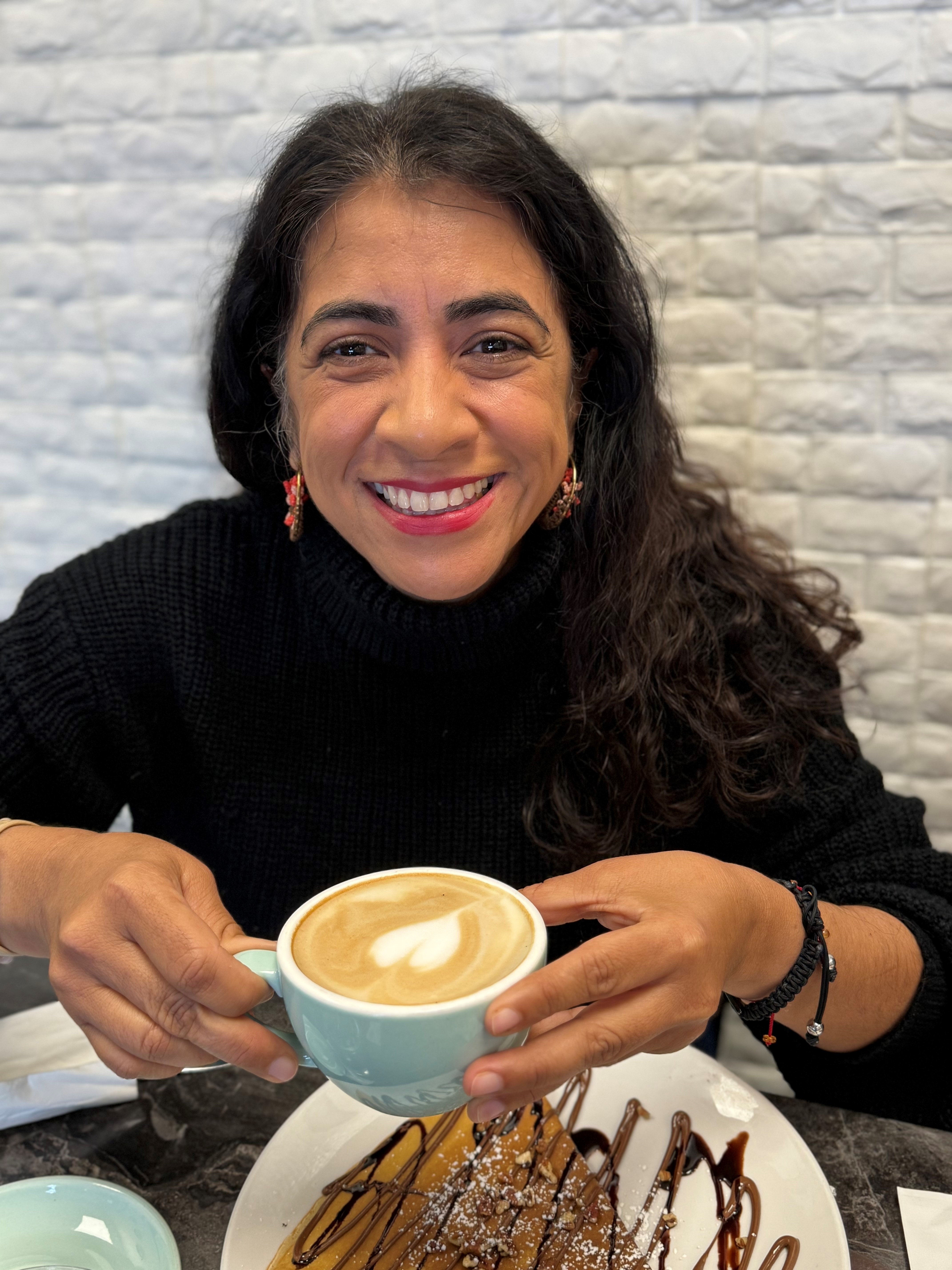
PhD student and Instructor of Spanish
Brisa del Bosque is a first-year doctoral student in Hispanic Linguistics at the University of New Mexico in Albuquerque. She is a graduate of Tec de Monterrey (ITESM) in her hometown of Monterrey, Mexico. She studied British Literature at the University of Cambridge, England, and earned her Master's degree in Spanish at New Mexico State University. Brisa has worked as a trainer for bilingual teachers in Mexico and the United States. She is also the founder of several Spanish as a Heritage Language programs in Denver, Colorado, and she has developed bilingual curriculum K-12th. Brisa is an instructor and supervisor of SHL (Spanish as a Heritage Language) at UNM, where she has taught levels 1, 2, and 3 and is currently developing the online level 2 of SHL, as well as producing online resources for SHL. She has conducted research on pronunciation attitudes in Monterrey, Mexico; teaching practices in Spanish classes in the United States; teaching Spanish as a heritage language; and Spanish variation. Her passion is to promote the teaching and use of Spanish in the United States, so that the Spanish language is not lost in this country.
Damián Vergara Wilson
Professor
Damián Vergara Wilson is a professor in the Department of Spanish and Portuguese where he directs the Spanish as a Heritage Language program. His project involves contributions from multiple graduate students including Brisa del Bosque, Elizabeth Zavala, Jorge Hernández and María Domínguez in their project Heritage Spanish. While OERs are valuable for educators in all fields, they hold a particular importance in the teaching of Spanish as a Heritage Language (SHL). One of the main goals of teaching SHL is to provide a meaningful educational experience for students who come from communities where Spanish is historically part of the social fabric. Often, these communities experience intergenerational language loss as English becomes the main language. Language loss is frequently connected to larger societal forces that convey messages and ideologies that the heritage language is not worth preserving. Therefore, teaching SHL requires educators to confront these factors in helping students to understand their own sociolinguistic circumstances. One of the problems, however, is that commercially available textbooks often fail to address these sociolinguistic issues and frequently buttress negative attitudes that students might hold toward their heritage language. On one hand, this is a problem, but on the other, it invites educators to create materials that both teach the language and address these sociolinguistic issues. He hopes that his OER reaches these goals.
OER Champions
Dr. Kathryn McKnight
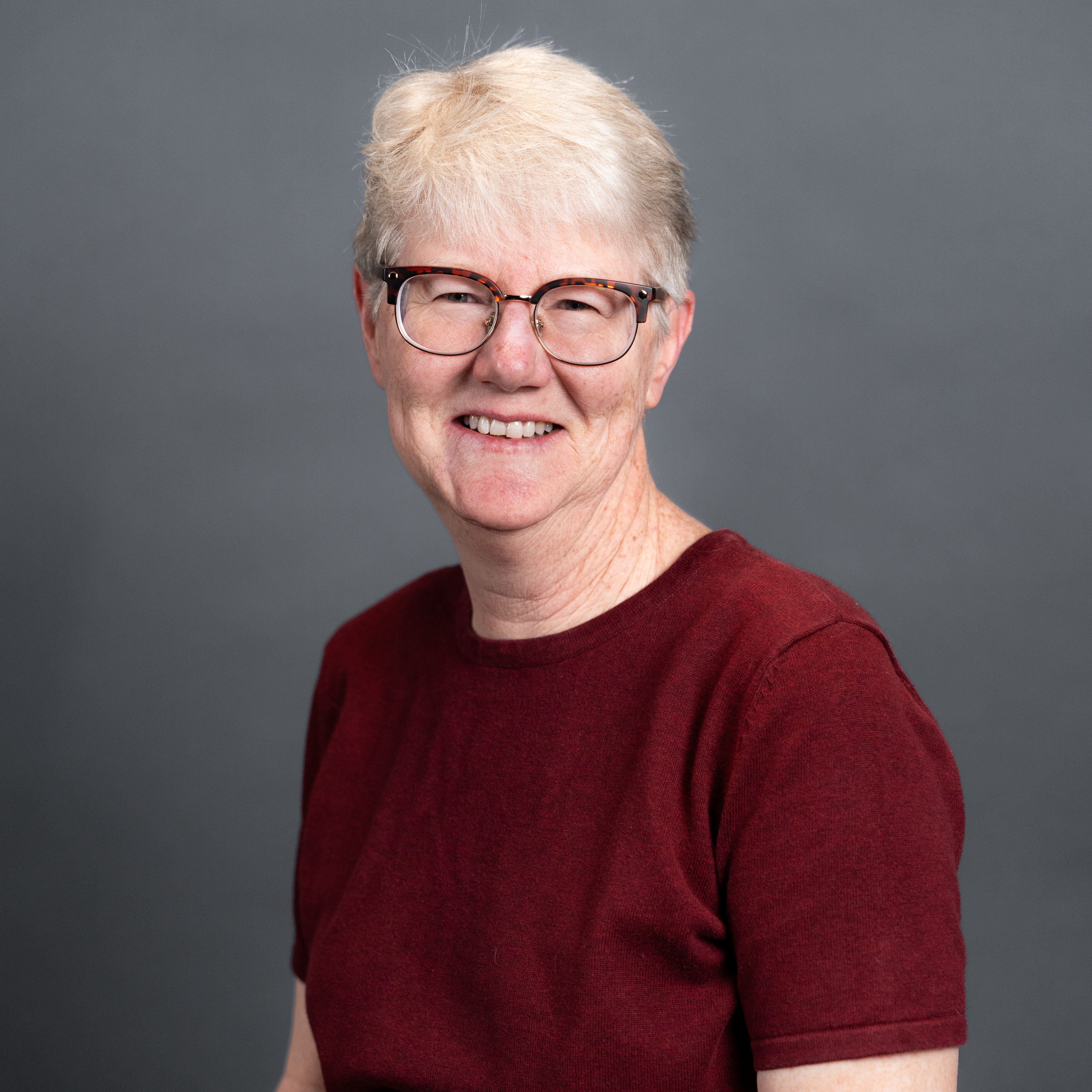
Dr. Kathy McKnight
Kathy McKnight, associate director at the Latin American Iberian Institute at UNM, is a pioneer in Open Educational Resources. With her first project, she turned to Health Humanities as a way to engage future health professionals in humanistic study, by co-authoring the Open Educational Resource, Para vivir con salud. Leyendo la salud y la literatura (2021), which can be used as an alternative to the standard Introduction to Hispanic Literature course texts. In spring 2024, she began a project with graduate students and faculty at the University of New Mexico and Central New Mexico Community College to write Untextbook. Introduction to Latin American Studies, that looks to capture student curiosity through a series of "hooks" introducing each chapter: compelling news, events, maps, images, music, and stories: toppling statues, hip-hop face-offs, climate protests, social movement websites. The book guides students through active learning and inquiry to dig into the meaningful contexts exemplified by the hook: the history of race and racial stratification and exclusion, the planetary realities of climate change and continent-wide responses, the history of extraction and colonization, and the rich local knowledge that was long ignored or subordinated and now inspires political movements as well as biopharmaceutical exploitation.
Dr. Xaver Neumeyer

Xaver Neumeyer, an Assistant Professor at the Anderson School of Management, has an academic focus that lies at the intersection of entrepreneurship, technology management, and innovation, emphasizing how these areas impact economically disadvantaged communities. Professor Neumeyer explains that Open Educational Resources (OER) and AI can make education more accessible to all kinds of learners, particularly providing free, high-quality materials, allowing people to learn without financial constraints. AI tools, such as ChatGPT, can assist users with breaking down complex topics into manageable parts, recommending what they should focus on or translating content into different languages, thereby speeding up their learning process. The core of his project lies in two primary activities: case study creation and rubric development. Traditionally, case studies are pre-prepared learning tools that students analyze to gain insights into real-world scenarios related to their field of study. However, by giving students the tools to create their own case studies, this project pushes them to not only understand the material on a deeper level but also to think creatively and apply their knowledge in practical, real-world contexts.
Nicholas Humphries
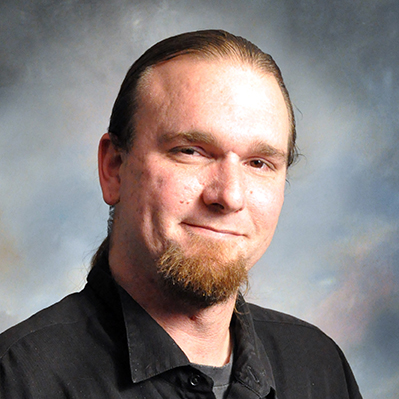
Nicholas Humphries has been an Instructional Designer with the Center for Teaching and Learning (CTL) for 5 years, and like many of his colleagues, has strong interest in Universal Design and in supporting instructors to make their course content more accessible. As a former student with disabilities, he finds that the best courses are designed in a way that eliminates the need to request accommodation. By applying the same mindset to reviewing Open Educational Resources (OER), explains Humphries, “the more potential barriers to learning we remove, the better the outcomes are for all users...produc[ing] work that ...serves as an example to other institutions on how they might design their OER content.” As part of reviewing OER materials, he examines alternative text, heading hierarchy, color contrast, descriptive hyperlinks, and HTML tables throughout an entire textbook, documents his findings and creates a detailed checklist highlighting areas for improvement, along with guidance and relevant examples from other institutions. Additionally, he provides insights on how users with assistive technology might interact with various elements of the textbook.
Dr. Lisa Myers
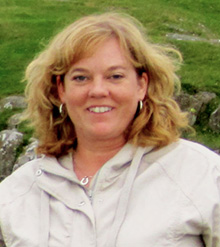
A term lecturer in the UNM Department of English Language and Literature, Lisa Myers has taught the entire range of Core Writing courses. Since virtually all undergraduates take a combination of writing courses, she believes that the Core Writing program is vital for enabling students to be successful at UNM and in their future careers. She supports the development of Open Educational Resources because they improve student outcomes by making access to course materials more equitable. The UNM Core Writing OER Collection was developed specifically for freshman writing classes at UNM and assists students in the transition to college academics through a genre-based approach to writing. This text helps students develop an adaptable writing process, argumentation and research skills. Myers says, “Developing an OER can be a daunting task. The best advice I can give is just to start. Get in the trenches and do the work... As educators, we understand that meaningful learning occurs when struggling through the process and you will learn a lot developing an OER."
Dr. Leandra Binder
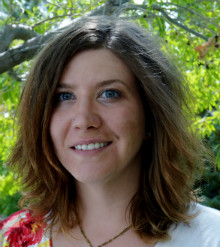
An instructor in the English Department at UNM, Leandra Binder, spent her spare time this spring and summer creating The UNM Core Writing Grammar Guide, a searchable handbook that addresses the mechanics of standardized American English by parsing out topics such as sentence structure, punctuation, and parts of speech into an easy to navigate format. She believes OERs represent a step forward by reducing textbook costs, especially freely available, curated collections that make quality educational materials widely available to anyone with interest and internet access. Binder recommends, “starting small by exploring open access materials, to evaluate the relevance and quality of the material that is already available...Slowly incorporating a few OER materials into your courses allows for feedback from students and colleagues.” She credits collaboration and the experienced OER Librarian, Jennifer Jordan, for support during her process.
OER Champions' stories were compiled and written by the NMOER Consortium Grant Project Assistant, Kiernan Cantergiani.
PAST OER CHAMPIONS
Dr. THERESE BACA-RADLER
I wish people knew how easy it was to gain leverage in collecting resources and putting them together and how much fun it is to really gain autonomy over curriculum.
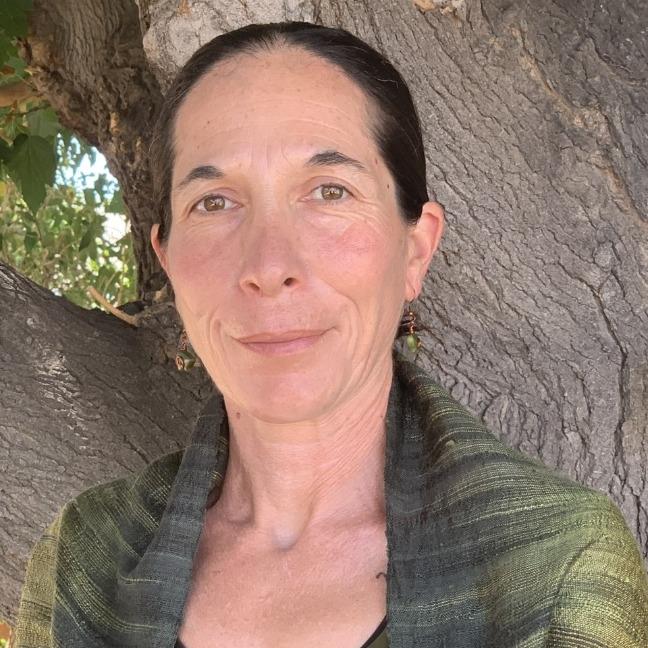 For Therese Baca-Radler, a part-time adjunct instructor who works in the First Year Experience program, open access materials are not only about a cut in cost they're about autonomy. Growing up, I loved being able to sit on the ground and look at encyclopedias, Baca-Radler said. I never really understood the difference between what was in the encyclopedia and what was another sort of resource book. Baca-Radler explained that resources people can access from anywhere serve a global purpose. An OER book expands a learner's knowledge exponentially and creating your own document for sharing has its benefits. I wish instructors would understand that feeling of accomplishment in the end when you have a little bit more autonomy over what is being presented, Baca-Radler said. I think more teachers would get on board and do it. It's a game-changer, people save money, and [instructors] to see the have autonomy they have over the curriculum.
For Therese Baca-Radler, a part-time adjunct instructor who works in the First Year Experience program, open access materials are not only about a cut in cost they're about autonomy. Growing up, I loved being able to sit on the ground and look at encyclopedias, Baca-Radler said. I never really understood the difference between what was in the encyclopedia and what was another sort of resource book. Baca-Radler explained that resources people can access from anywhere serve a global purpose. An OER book expands a learner's knowledge exponentially and creating your own document for sharing has its benefits. I wish instructors would understand that feeling of accomplishment in the end when you have a little bit more autonomy over what is being presented, Baca-Radler said. I think more teachers would get on board and do it. It's a game-changer, people save money, and [instructors] to see the have autonomy they have over the curriculum.
Mr. CASH CLIFTON
I think OER is the future of education. I think that's where we're going.
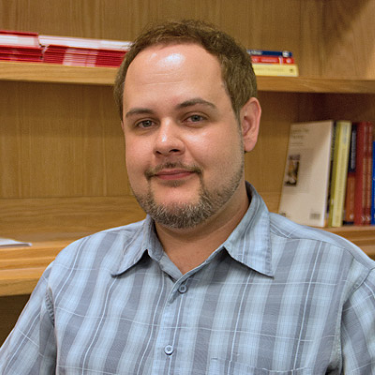 When he was a college student, Cash Clifton faced a $500 price tag for one calculus book he needed for a class. I found that absolutely horrifying, Clifton said. I started talking to administrators, wanting to know where is this money going and what is being done with it? Clifton, in his role as Director of Academic Communities and a Foundational Math Coordinator and Lecturer II, centers the academic needs of students, which includes keeping the costs of textbooks down. I think OER is the future of education, Clifton said. I think that's where we're going. Clifton explained that OER material is about lowering costs.I think things like OER and other movements to lower the cost of higher education, create fewer barriers to entry, Clifton said. I think [OER] is a very powerful tool to create equity in our society.
When he was a college student, Cash Clifton faced a $500 price tag for one calculus book he needed for a class. I found that absolutely horrifying, Clifton said. I started talking to administrators, wanting to know where is this money going and what is being done with it? Clifton, in his role as Director of Academic Communities and a Foundational Math Coordinator and Lecturer II, centers the academic needs of students, which includes keeping the costs of textbooks down. I think OER is the future of education, Clifton said. I think that's where we're going. Clifton explained that OER material is about lowering costs.I think things like OER and other movements to lower the cost of higher education, create fewer barriers to entry, Clifton said. I think [OER] is a very powerful tool to create equity in our society.
Dr. DAVID DIXON
The only material that I use is available to everyone.
For Dr. Dave Dixon, a lecturer for the UNM Department of Economics, materials available to all just makes sense in the wake of COVID and now that his department offers a fully-online education in both major and minor degrees in economics. Access, no matter where you are, is important to Dixon. “Although my background is not in online education, and I'm not even actually a huge fan of online education, the fact is it's probably better than giant lecture halls.” Dixon added that open source materials allows instructors to incorporate information, “without having to address the intellectual property issues.” Of course, as professor teaching economics, OER is cost-effective. And one of the things that I've been looking at in terms of curriculum is things that are accessible and inexpensive to our students, so that we can, as instructors, can feel free to tailor the curriculum to our needs or to the needs of the students without worrying about them having spent 200 or $250 on a textbook.
Dr. Zachary Sharp
I don't want [my students] to have to pay [lots] of money for a book. Digital access is free, or low cost and everyone benefits.
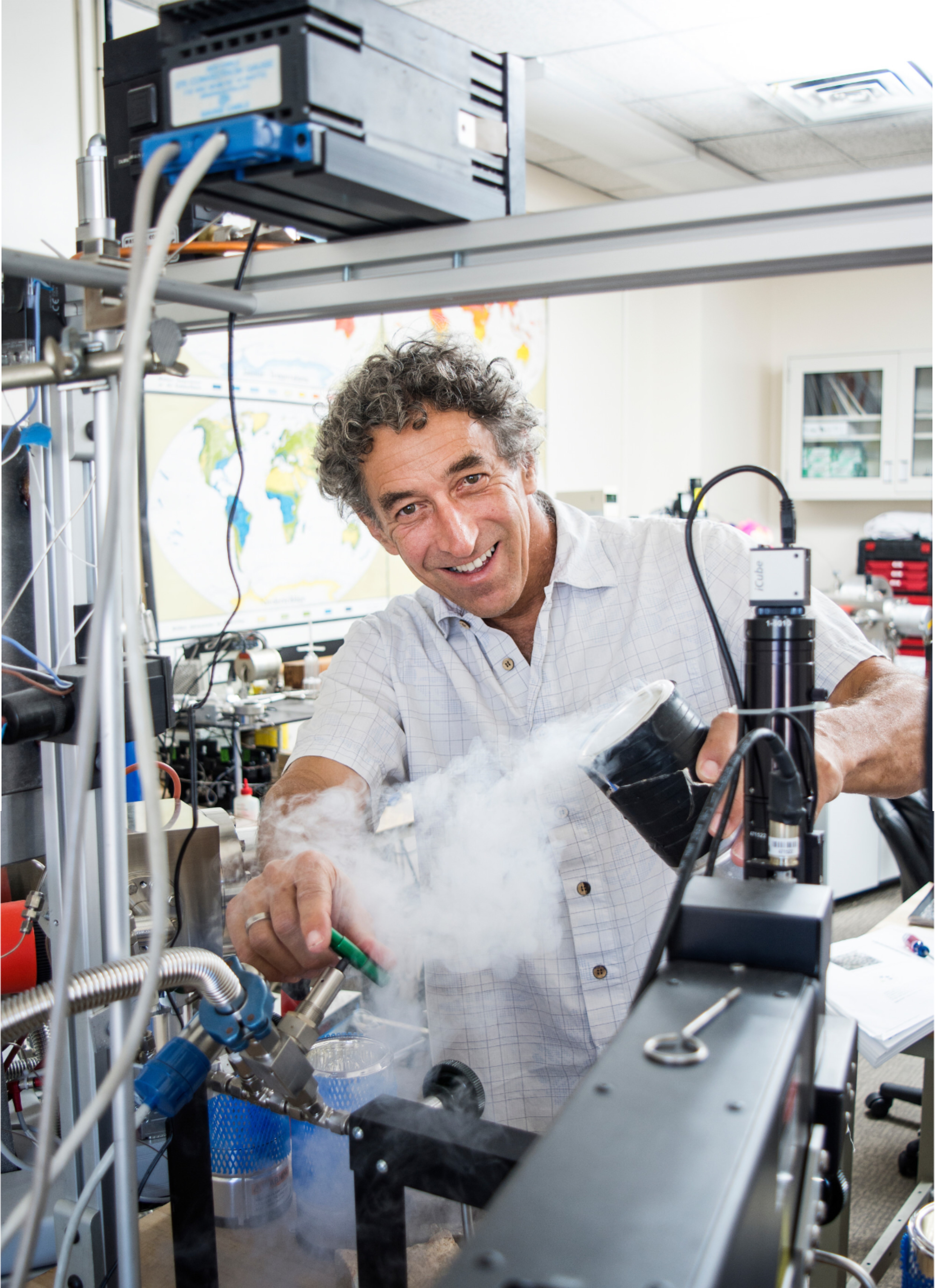 Dr. Zachary Sharp is a distinguished professor in Earth and Planetary sciences and the Director of the Center for Stable Isotopes (CSI) within in the Interdisciplinary Science Co-op. Sharp is an early creator of open access materials. When Sharp decided to publish a new edition of his 2007 book, Principles of Stable Isotope Geochemistry, he knew he wanted to make the material available to anyone who needed it. A book signing moment led Sharp to this realization. [Someone said] “‘Hey, can you sign copy my book? [I said] ‘Yeah.' [It] was a Xerox copy. So when we finished with the first edition of this book, I got permissions for the rights to the book,” Sharp said. “Since then, there have been over 35,000 downloads. There it is for all to use. Another benefit to OER is the ability to make changes to digital materials. The other nice thing about a digital book is you can change it all the time, Sharp said. You can change it all the time when you find mistakes or when you want to add new material. It's a living document.Dr. Sharp's textbook is available Open Access on UNM's Digital Repository.
Dr. Zachary Sharp is a distinguished professor in Earth and Planetary sciences and the Director of the Center for Stable Isotopes (CSI) within in the Interdisciplinary Science Co-op. Sharp is an early creator of open access materials. When Sharp decided to publish a new edition of his 2007 book, Principles of Stable Isotope Geochemistry, he knew he wanted to make the material available to anyone who needed it. A book signing moment led Sharp to this realization. [Someone said] “‘Hey, can you sign copy my book? [I said] ‘Yeah.' [It] was a Xerox copy. So when we finished with the first edition of this book, I got permissions for the rights to the book,” Sharp said. “Since then, there have been over 35,000 downloads. There it is for all to use. Another benefit to OER is the ability to make changes to digital materials. The other nice thing about a digital book is you can change it all the time, Sharp said. You can change it all the time when you find mistakes or when you want to add new material. It's a living document.Dr. Sharp's textbook is available Open Access on UNM's Digital Repository.
OER Champions' stories were written and compiled by the OER Graduate Fellow, Marya Errin Jones.
